Filter by

The making of grand Paris :metropolitan urbanism in the twenty-first century
A critical examination of metropolitan planning in Paris -- the ""Grand Paris"" initiative -- and the building of today's networked global city.OCLC-licensed vendor bibliographic record.
- Edition
- -
- ISBN/ISSN
- 9780262337014
- Collation
- 1 online resource (viii, 313 pages).
- Series Title
- -
- Call Number
- -
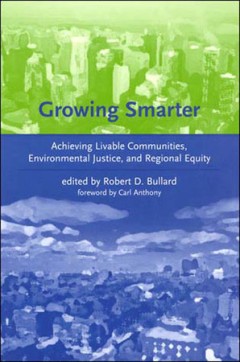
Growing smarter :achieving livable communities, environmental justice, and re…
Experts from academia, government, and nonprofit organizations offer an environmental justice perspective on Smart Growth, discussing equitable solutions to suburban sprawl and urban decay.OCLC-licensed vendor bibliographic record.
- Edition
- -
- ISBN/ISSN
- 9780262269537
- Collation
- 1 online resource (xvii, 407 pages) : illustrations, maps.
- Series Title
- Urban and Industrial Environments
- Call Number
- -
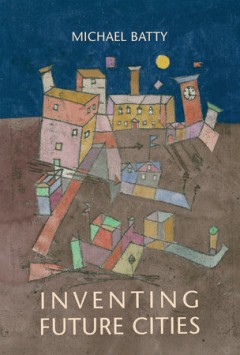
Inventing future cities
How we can invent--but not predict--the future of cities. We cannot predict future cities, but we can invent them. Cities are largely unpredictable because they are complex systems that are more like organisms than machines. Neither the laws of economics nor the laws of mechanics apply; cities are the product of countless individual and collective decisions that do not conform to any grand plan…
- Edition
- -
- ISBN/ISSN
- 9780262349895
- Collation
- 1 online resource (304 pages).
- Series Title
- -
- Call Number
- -
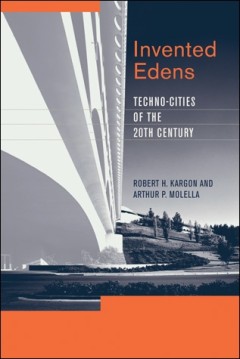
Invented Edens : Techno-Cities of the Twentieth Century
Tracing the design of "techno-cities" that blend the technological and the pastoral. Industrialization created cities of Dickensian squalor that were crowded, smoky, dirty, and disease-ridden. By the beginning of the twentieth century, urban visionaries were looking for ways to improve both living and working conditions in industrial cities. In Invented Edens, Robert Kargon and Arthur Molella t…
- Edition
- -
- ISBN/ISSN
- -
- Collation
- 1 online resource (viii, 190 pages) :
- Series Title
- -
- Call Number
- -
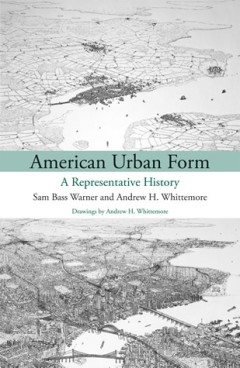
American urban form :a representative history
An illustrated history of the American city's evolution from sparsely populated village to regional metropolis.American Urban Form--the spaces, places, and boundaries that define city life--has been evolving since the first settlements of colonial days. The changing patterns of houses, buildings, streets, parks, pipes and wires, wharves, railroads, highways, and airports reflect changing patter…
- Edition
- -
- ISBN/ISSN
- 9780262301671
- Collation
- 1 online resource (183 pages).
- Series Title
- -
- Call Number
- -
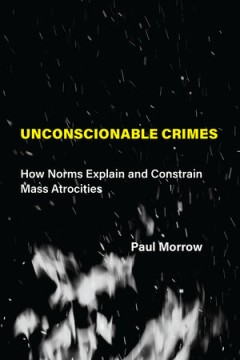
Unconscionable crimes :how norms explain and constrain mass atrocities
"An original argument for the role of social norms in the explaining and preventing the rise of genocide and mass atrocity"--OCLC-licensed vendor bibliographic record.
- Edition
- -
- ISBN/ISSN
- 0262360845
- Collation
- 1 online resource.
- Series Title
- -
- Call Number
- -
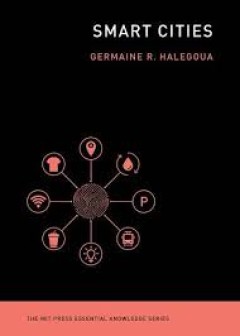
Smart Cities
Key concepts, definitions, examples, and historical contexts for understanding smart cities, along with discussions of both drawbacks and benefits of this approach to urban problems. Over the past ten years, urban planners, technology companies, and governments have promoted smart cities with a somewhat utopian vision of urban life made knowable and manageable through data collection and analys…
- Edition
- -
- ISBN/ISSN
- 9780262356848
- Collation
- 1 online resource (248 pages).
- Series Title
- -
- Call Number
- -
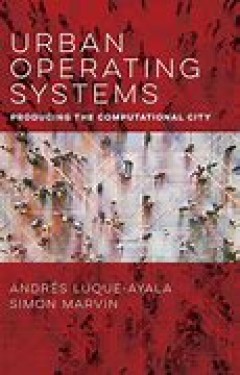
Urban Operating Systems: Producing the Computational City
"Urban OS critically examines the modest potentials and serious contradictions of reconfiguring urban life, city services, and urban networked infrastructure through computational operating systems"--OCLC-licensed vendor bibliographic record.
- Edition
- -
- ISBN/ISSN
- 9780262360982
- Collation
- 1 online resource.
- Series Title
- -
- Call Number
- -

Cryptographic city :decoding the smart metropolis
"Coyne examines urban living through the frame of cryptography, diving into the technologies, instruments, and processes of hiding information, messages, things, spaces, places, and people within cities"--OCLC-licensed vendor bibliographic record.
- Edition
- -
- ISBN/ISSN
- 9780262374828
- Collation
- 1 online resource
- Series Title
- -
- Call Number
- -

Introduction to urban science :evidence and theory of cities as complex systems
"A comprehensive, scientific guided tour of how cities work and generate change in human societies"--OCLC-licensed vendor bibliographic record.
- Edition
- -
- ISBN/ISSN
- 0262366444
- Collation
- 1 online resource.
- Series Title
- -
- Call Number
- -
 Computer Science, Information & General Works
Computer Science, Information & General Works  Philosophy & Psychology
Philosophy & Psychology  Religion
Religion  Social Sciences
Social Sciences  Language
Language  Pure Science
Pure Science  Applied Sciences
Applied Sciences  Art & Recreation
Art & Recreation  Literature
Literature  History & Geography
History & Geography